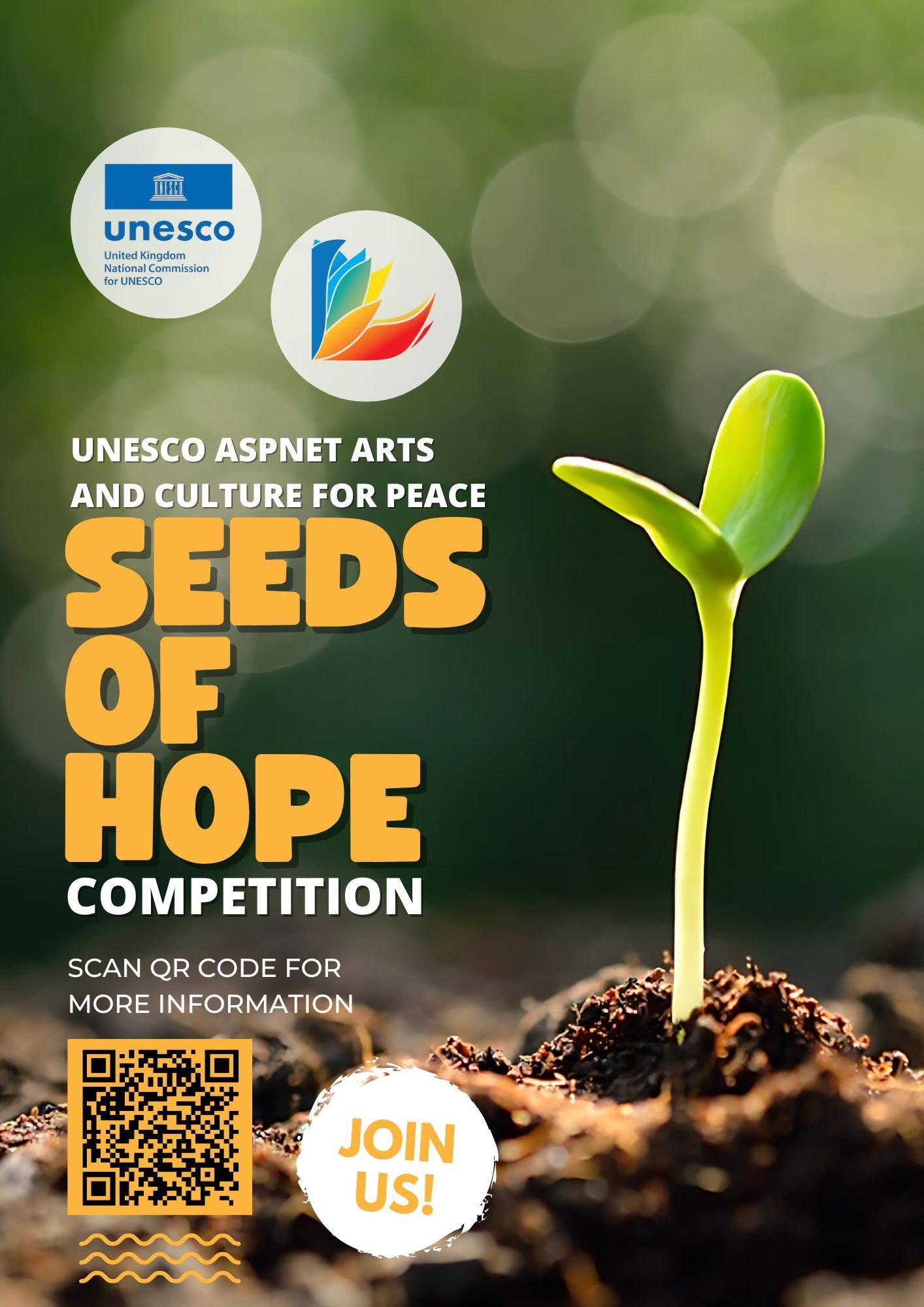Seeds of Hope for a Better Future - 2025 Competition
The UNESCO UK Associated Schools Programme Network (ASPnet) Seeds of Hope for a Better Future project supports UNESCO’s Sustainable Development Goals and ASPnet’s key action areas - promoting peace, sustainability and intercultural learning and heritage, especially in the context of the challenges of climate change.
The 2025 Competition seeks to inspire young people and key partners (educators, artists, scientists and others) to work together to create legacy arts and culture projects for the benefit of local, national and international communities and to reflect the importance of protecting and improving the bio-diversity of seeds against the impact of climate change.
Young people and their partners are asked to create Seeds of Hope art works/stories in partnership with others.
(see: Seeds of Hope for a Better Future – Part 1: Creating Seeds of Hope Stories) (see also Kew resource links).
Competition Brief
“Imagine you are a seed."
Create an artwork that describes your value – as a seed – to the world and your geographical origins.
Art works should tell the story about how you – as a seed – must adapt to survive because local weather patterns and conditions have changed and are beginning to make your life perilous.
The competition brief above is just an idea to inspire you, you may have another idea of how to interpret Seeds of Hope for a Better Future and share your work.
The competition seeks to encourage and inspire young people and their partners to use a range of artistic expressions to create impactful arts and culture legacy projects for the benefit of others. Artwork examples could include:
- Art works, which can be a gallery exhibition or community art work for long-term display in a prominent outdoor space/public indoor area, and/or a touring exhibition.
- Illustrated poems/short stories as the focus of presentation for local poetry/story festivals or widely circulated through a variety of print media, such as books/flip books, posters, leaflets or other graphic formats.
- Digital illustrations using photography/film/animation circulated through social and other public media formats or exhibitions.
- Performance and/or installation art, such as a young people’s play/opera/musical theatre/dance/installation art/sculpture park.
All artwork making a positive contribution to the project’s mission, aims and objectives will be received and shared via the UNESCO ASPnet National Coordinators.
About Participation - PARTICIPATION FORM
If you are interested in entering the competition, we cordially invite you to consult the Competition Rules and Guidelines and to contact your UNESCO ASPnet National Coordinator for further guidance about participating.
Good luck everyone! We look forward to seeing how your seeds of inspiration will help communities grow…!





